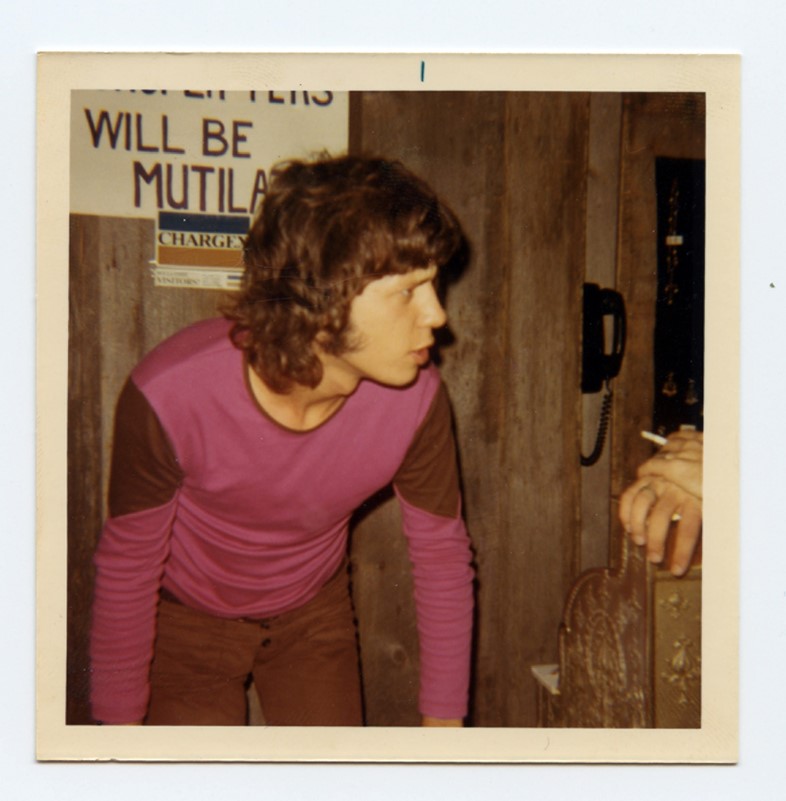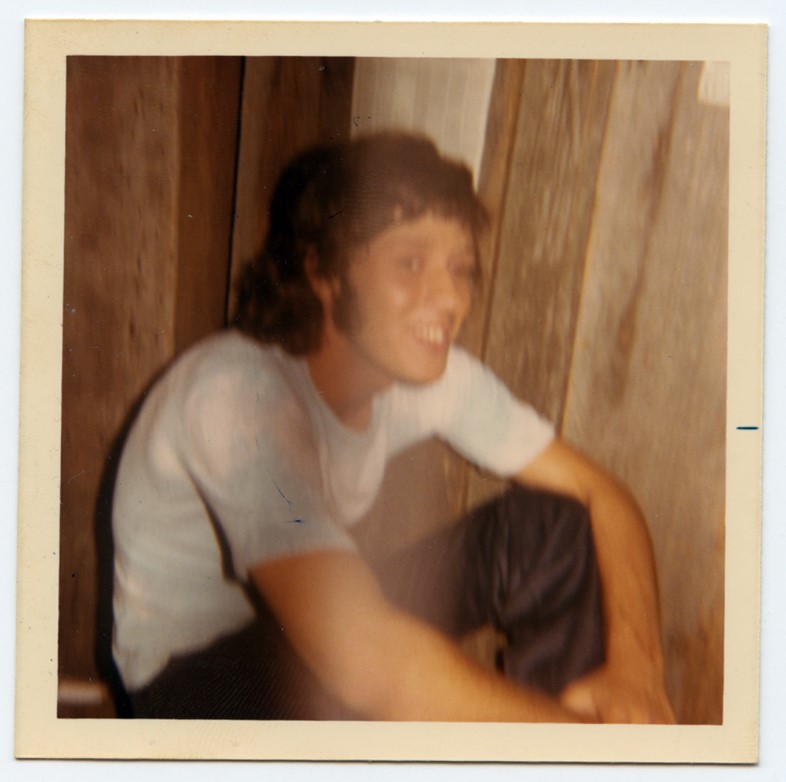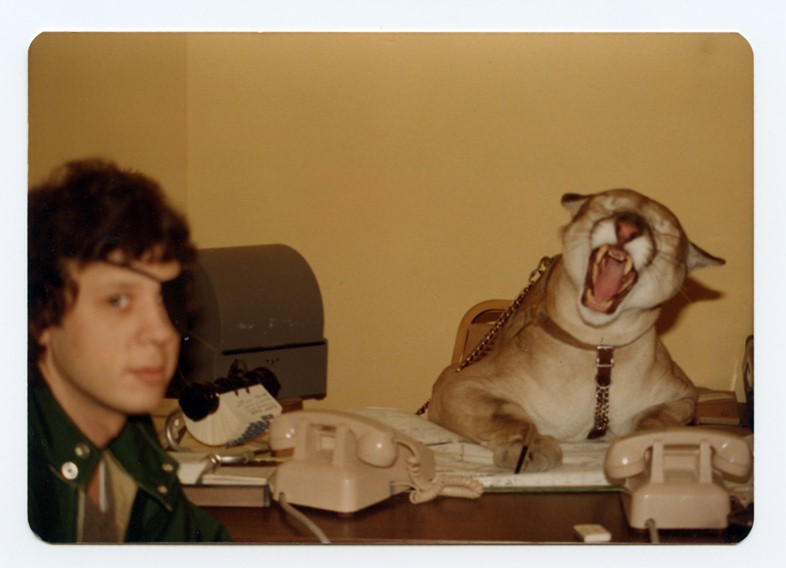Miss Rosen meets Peter Gatien, also known as New York’s “King of Clubs”, who has just released a memoir chronicling his journey from a childhood in a Canadian mill town to the apex of a cultural empire
- TextMiss Rosen
From the late 70s to the late 90s, Peter Gatien reigned as New York’s “King of Clubs”, running four of the city’s most hedonistic playgrounds which operated seven nights a week during that time. With Limelight, Tunnel, Palladium, and Club USA, Gatien brought Babylon back to life, introducing spaces where innovative and influential new forms of music, fashion, art and culture could flourish. Whether cultivating the Club Kids phenomenon at Michael Alig’s weekly Disco 2000 party or bringing hip-hop royalty together for Mecca with Funkmaster Flex, Gatien had a magic touch.
But Gatien ruled his kingdom from behind the scenes. With his distinctive eye patch and tall and rangy frame, he was known as a ghost, remaining in the background, and keeping his eyes on the books. Ever discreet, Gatien was the consummate businessman who eschewed the spotlight, making sure the focus was always on the party and its denizens. However, his ‘live and let live’ ethos rankled the man who loved the cameras more than just about anyone else – then-mayor Rudolph Giuliani, who waged war on the city and its nightlife with his virulent ‘Quality of Life’ campaign. With Gatien in his crosshairs, Giuliani took aim, waging a vicious media and legal campaign that ultimately led to his deportation in 2003.

“You just can’t let them beat you,” Gatien tells Another Man from his Toronto home. “I still love America – I don’t love it with Trump, but I love the American Dream.” This month, Gatien makes a masterful return with the publication of The Club King: My Rise, Reign & Fall in New York Nightlife (Little A), a mesmerising memoir chronicling his unlikely journey from a humble childhood in a Canadian mill town to the apex of a cultural empire that defined the spirit of pre-gentrification New York.
“Those were great years,” Gatien says knowingly, without a hint of nostalgia or wist in his voice. Enough time has passed so that the bitterness is gone, and what remains is the knowledge of what his work meant to our world. “I did clubs in the 70s, 80s, and 90s; the music, fashion, and art changed – but it was basically the same. It was much more egalitarian. It was about what you offered to the party, whether it was the way you dressed, the attitude, or the energy you brought to the night. It wasn’t like, ‘Can you spend $500 on a table?’ Bottle service was one of the contributing factors to the demise of nightlife as we knew it.”
Beginning with the earliest incarnation of Limelight in Florida in 1976, Gatien immediately understood the importance of queer culture at clubs – both to create a safe haven for the community, and to bring disparate people together under the best of circumstances. “The queer crowd is great because they add a lot of energy to the party. They go out, have a great time, and are trouble free,” Gatien says, noting that in other spaces, alcohol can become a catalyst for physical altercations.

“Back then, LGBTQ acceptance was not what it is today and the clubs provided a place where they felt valued, and part of the culture and creative community. I remember on nights we would be 40 per cent gay, 60 per cent straight, and you’d get everybody from tourists to Brooklyn guys looking to improve on life. I’m sure they got exposed to gay culture, seeing these people they considered ‘wacky’ a month beforehand [but] they all socialised in the end. It was more than just that they tolerated each other – they actually enjoyed each other’s company. By exposing people and integrating them, they realised they have a lot more in common with these people than they don’t.”
Operating under the philosophy that clubs create – and fuel – culture, Gatien used each party to nurture music scenes while they were still underground, cultivating a core community that seamlessly seeded it into the world when they went home. Depending on the night, you could find rock, house, grunge, hip hop, industrial, and techno parties – as well as record launches, fashion shows, book parties, or birthday bashes for New York’s downtown luminaries. The DJs and performers Gatien brought in were nothing less than the crème de la crème. Each club was brilliantly designed with the help of artists including Kenny Scharf, Thierry Mugler, and Jean-Paul Gaultier, to name just a few. The Tunnel made unisex bathrooms chic decades before conservatives turned it into a controversy and Club USA offered a massive tube slide that led down to the dance floor, while Limelight itself was a deconsecrated church, which transformed many a night into a religious experience.
While thousands of people revelled in peace, love, unity and respect every night, Giuliani was determined to turn on the lights and padlock the door. In 1996, the federal government launched an investigation trying to link Gatien to the sale of drugs; he was acquitted of all charges. He was then attested for tax evasion, pled guilty, and later deported for that charge in 2003. In light of the actions of the American government today, Gatien’s harrowing trip through the legal system and the war waged against him by the New York Post has only increased in significance.

“What they did to me is unconscionable. It was total abuse of power,” Gatien says. He’s careful to point out he does not want this to come across like a victim narrative, given the reality so many people with less resources than he had at the time. “It’s an awful way to live. My heart really goes out to anybody who gets caught in the system. I’m lucky. I had the support of my family and [my lawyer] Ben Brafman. You look across the world and it’s like, ‘Jesus, I’ve got it pretty good.’”
Indeed, Gatien’s comeback is just getting started. He reveals that Nicholas Pileggi, screenwriter of Goodfellas, Casino, and American Gangster, has adapted his memoir for a film produced by Amazon Studios. It’s going to be a wild ride – but don’t expect any dirty celebrity secrets to be revealed. Gatien’s not that type of guy. “I told Amazon right off the bat this is not a tell-all book,” he says. “I mentioned no names of anybody. I wasn’t going to go down that path. If someone misbehaved, I don’t want to taint that person. What would I get out of that? Discreet – that’s the way it should be.”
The Club King: My Rise, Reign & Fall in New York Nightlife by Peter Gatien is published by Little A.











